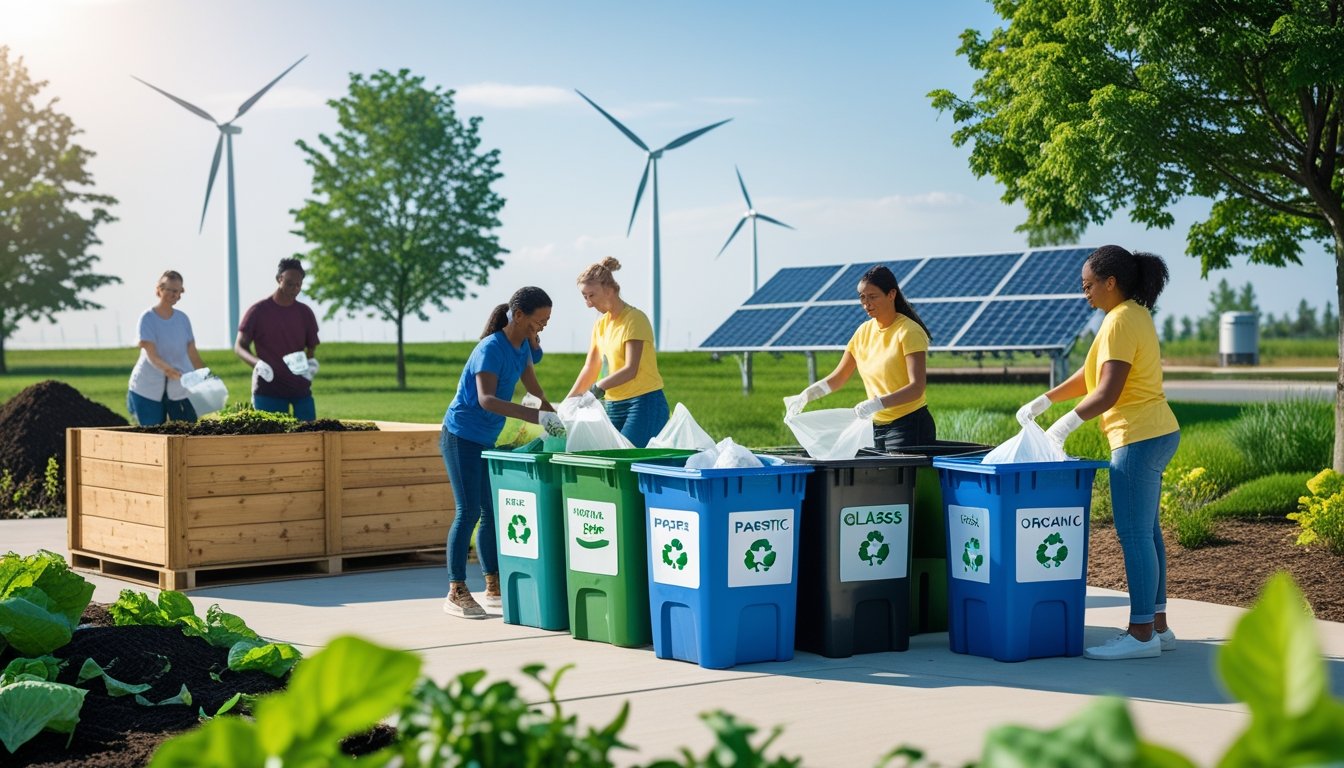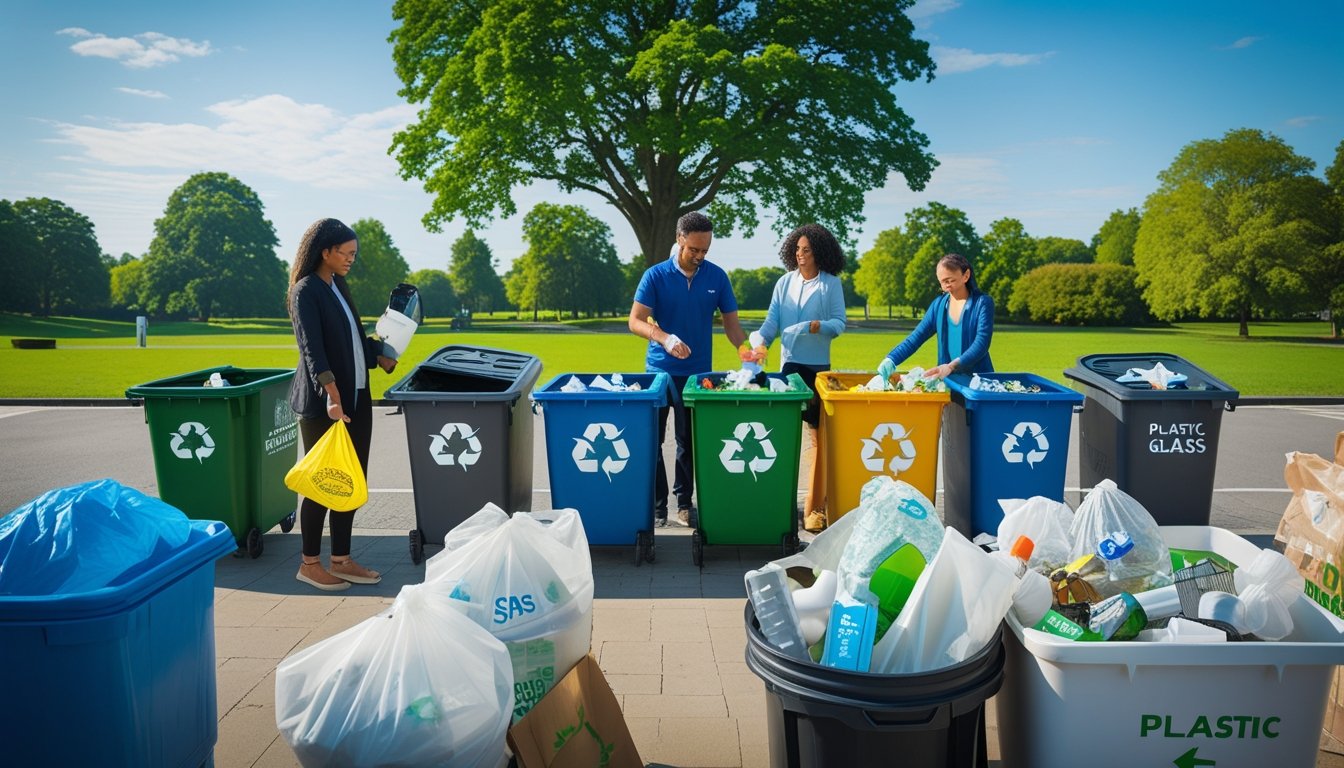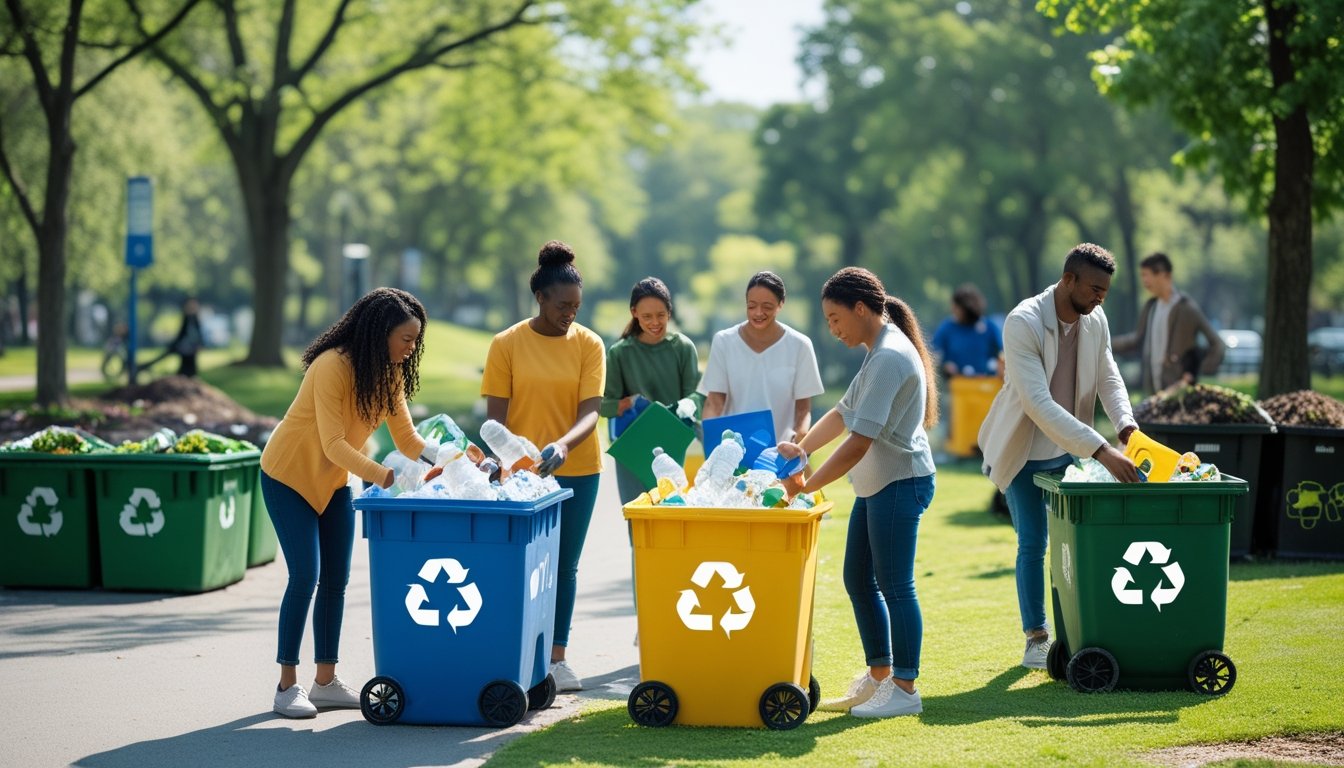Late updated: 04 Jul 2025 13:07
Written by: Sarah Hollister
Effective Strategies for Reducing Landfill Waste: Practical Solutions and Tips
The growing issue of landfill waste is an urgent environmental challenge. We encounter waste in our daily lives, from plastic packaging to organic refuse, and understanding how to effectively mitigate its impact has never been more important. By employing a combination of waste reduction, recycling, and community education, we can significantly decrease the volume of waste ending up in landfills. Each step we take towards reducing waste contributes to the health of our planet for future generations.

In tackling this issue, we have an array of strategies at our disposal that focus on sustainable waste management. Simple actions like composting, reducing consumption, and opting for reusable products can make a substantial difference. As we make these choices, not only do we minimise our own carbon footprint, we also help influence broader community behaviours.
Our journey into effective waste management starts with understanding what we can do as individuals and how our collective efforts play a critical role. This article aims to explore the fundamental approaches and advancements in waste management that promise a sustainable future.
Key Takeaways
- Employ waste reduction and recycling to combat landfill waste.
- Sustainable choices reduce our carbon footprint and promote community change.
- Individual actions drive broader, impactful sustainable practices.
Fundamental Waste Reduction Strategies

Reducing landfill waste is essential for environmental sustainability. By prioritising effective waste reduction strategies, we can address the challenges of solid waste management. Key areas include enhancing recycling and composting efforts, cutting down on single-use plastics, adopting alternatives like reusable and biodegradable materials, and employing smarter approaches to manage food waste.
Prioritising Recycling and Composting
Recycling and composting are pivotal in reducing landfill waste. Curbside recycling programmes provide a convenient way for us to sort and recycle materials like paper, plastics, and metals. Recycled materials can be transformed into new products, further minimising waste. Composting, on the other hand, targets organic waste, turning it into nutrient-rich soil. Compost bins are an effective method for food waste diversion, reducing the burden on landfills. By encouraging communities to engage more actively in these practices, we can substantially decrease the volume of waste headed to landfills.
Minimising Single-Use Plastics
Single-use plastics, such as bottles and bags, are significant contributors to landfill waste. Prioritising products with minimal packaging and encouraging the use of reusable bags and water bottles can help cut down plastic waste. Legislation and policies that limit the distribution of single-use products have proven effective in promoting this change. Public awareness campaigns play a critical role, empowering individuals to make conscious choices, such as selecting products with reduced plastic content or recycling packaging effectively. By embracing these practices, communities can significantly cut down the amount of plastic entering landfills.
Embracing Reusable and Biodegradable Materials
Switching to reusable and biodegradable materials can significantly impact waste reduction. Everyday items like reusable containers and biodegradable packaging provide practical alternatives to disposable options. These materials are designed to break down naturally, causing minimal harm to the environment. By promoting such alternatives, businesses and consumers can drive an important shift towards sustainability. Initiatives supporting product reuse, like take-back schemes or renting, can further enhance efforts. This approach decreases reliance on conventional plastics, fostering a culture of environmental responsibility and contributing to long-term waste reduction.
Reducing Food Waste Through Smart Practices
Food waste is a pressing issue, with vast quantities ending up in landfills. By practising meal planning, one can avoid buying excess, thereby reducing waste. Making the most of leftovers through creative recipes is another effective way to minimise food waste. Communities can support food sharing networks that redistribute surplus food, ensuring it reaches those who need it. Awareness campaigns can educate households on the benefits of reducing food waste and adopting composting practices for biodegradable waste. Through coordinated efforts, it's possible to lessen the environmental impact of wasted food and promote a more sustainable lifestyle.
Advancing Sustainable Waste Management
Advancing sustainable waste management is key to reducing landfill waste and fostering a sustainable future. Key strategies include supporting recycling initiatives, encouraging donation and repurposing, handling hazardous waste responsibly, and promoting eco-conscious behaviour.
Supporting Recycling Programmes and Centres
Recycling programmes play a vital role in reducing municipal solid waste. By encouraging communities to participate in recycling initiatives, we can divert significant amounts of waste from landfills. Recycling centres provide convenient locations for the collection of materials such as paper, glass, and metals.
These centres help ensure that recycled materials are processed efficiently and re-enter the market as raw materials, thus supporting a circular economy. By bolstering these efforts, we reduce the environmental impact associated with the extraction of new materials and help combat climate change.
Engaging in Donation and Repurposing
Donating unwanted items is another effective strategy. When we donate clothes, furniture, and electronics, we give these items a new life, reducing waste. Repurposing items, such as turning old textiles into new fabric, helps us tap into their latent value.
Upcycling is a creative approach that transforms discarded materials into products of higher quality or artistic value. Engaging in these practices not only lessens the burden on landfills, but also promotes sustainability by conserving resources and reducing our overall carbon footprint.
Managing Hazardous and Electronic Waste Responsibly
Proper management of hazardous waste, such as cleaning agents and chemical fertilizers, is critical for environmental health. Separation and safe disposal of these substances prevent soil and water contamination. E-waste, which includes items like old mobile phones and rechargeable batteries, contains toxic components and requires specialised handling.
Supporting e-waste collection programmes ensures these materials are processed and recycled safely, thus mitigating potential harm. By adopting comprehensive waste management practices, we protect ecosystems and promote a more sustainable future.
Promoting Public Awareness and Eco-Conscious Consumption
Public awareness campaigns are instrumental in promoting eco-conscious behaviour. Educating consumers about the environmental impact of their choices encourages sustainable practices, such as reducing plastic packaging and opting for concentrated products.
As eco-conscious consumers, we can significantly lessen our environmental footprint by making informed purchasing decisions. Raising awareness about the importance of waste reduction and zero waste lifestyles empowers individuals to contribute positively to sustainable development and long-term environmental health.
Frequently Asked Questions

In addressing landfill waste reduction, there are various strategies we can employ. These range from altering household habits to broader societal changes. Through informed practices, we can collectively reduce landfill dependence and its environmental impact.
What are the most effective methods for reducing household waste?
To effectively cut down on household waste, we can adopt composting for organic materials and diligently recycle items like paper, glass, and plastics. Additionally, smart purchasing decisions and reusing items can significantly minimise waste generation at home.
In what ways can recycling help diminish landfill contribution?
Recycling facilitates the reuse of materials, reducing the need for new resource extraction and manufacturing. This process cuts down on the volume of waste sent to landfills and conserves energy, which helps decrease environmental pollution.
What are the viable alternatives to disposing of waste in landfills?
Alternatives to landfill disposal include composting organic waste, recycling eligible materials, and utilising waste-to-energy technology. These options not only reduce landfill usage but also support sustainable waste management practices.
How can individuals and businesses alike play a role in waste reduction?
Both individuals and businesses can play a vital role by adopting waste reduction strategies. For individuals, this may involve composting and conscious consumption. Businesses can implement recycling programmes and reduce packaging waste.
Can you provide some practical examples of waste reduction practices?
Practical examples include using reusable shopping bags, repairing items instead of discarding them, and choosing products with minimal packaging. Engaging in local recycling initiatives also plays a significant role in reducing waste.
What strategies exist for cutting down on waste in everyday life?
In everyday life, waste reduction can be achieved through practices like buying in bulk to reduce packaging, opting for digital over paper when possible, and participating in community clean-up events. By making mindful choices, we contribute to a more sustainable environment.
